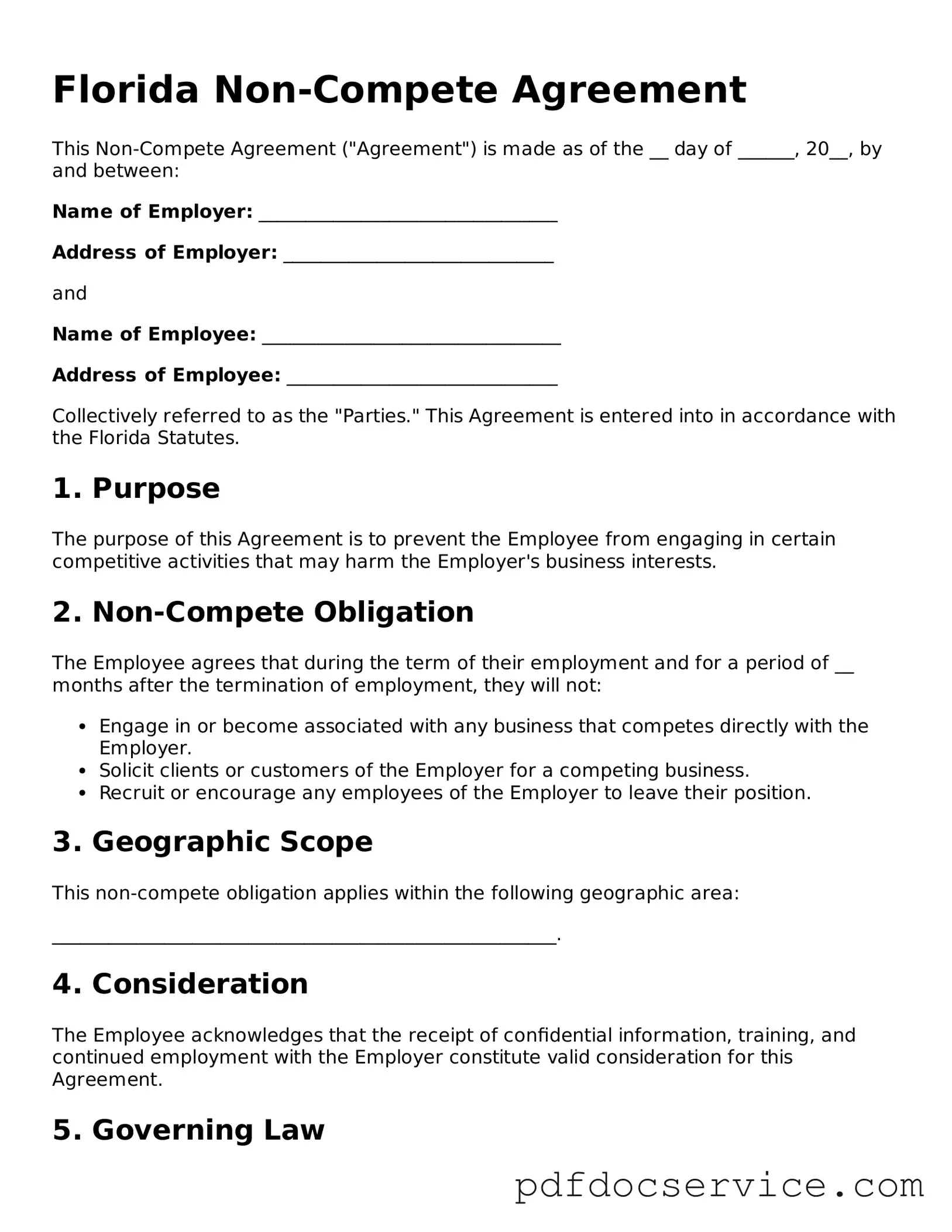What is a Florida Non-compete Agreement?
A Florida Non-compete Agreement is a legal contract between an employer and an employee. This agreement restricts the employee from engaging in business activities that compete with the employer's business for a specified period after leaving the company. The purpose is to protect the employer's legitimate business interests, such as trade secrets and customer relationships.
What are the key elements of a valid Non-compete Agreement in Florida?
For a Non-compete Agreement to be enforceable in Florida, it must include:
-
Reasonable time duration: The length of time the employee is restricted must be reasonable.
-
Geographic scope: The area in which the employee is restricted from competing must be clearly defined and reasonable.
-
Legitimate business interest: The agreement must protect a legitimate business interest of the employer, such as trade secrets, customer relationships, or specialized training.
How long can a Non-compete Agreement last in Florida?
The duration of a Non-compete Agreement in Florida can vary. Generally, the duration should be reasonable, typically not exceeding two years for most positions. However, the specific circumstances of the employment and the nature of the business may justify longer or shorter durations.
What geographic area can be covered by a Non-compete Agreement?
The geographic scope of a Non-compete Agreement should be limited to areas where the employer conducts business or has a legitimate interest. For instance, if an employer operates primarily in Florida, the agreement may restrict competition within the state or specific counties. The key is that the geographic area must be reasonable and not overly broad.
Are there any exceptions to enforceability in Florida?
Yes, certain exceptions exist. For instance, if the agreement is deemed overly restrictive or if the employee did not receive adequate consideration for signing the agreement, a court may refuse to enforce it. Additionally, if the employee is terminated without cause, the Non-compete Agreement may be less likely to be enforced.
Can an employee negotiate the terms of a Non-compete Agreement?
Employees can negotiate the terms of a Non-compete Agreement before signing it. It is advisable for employees to seek clarification on any terms that seem unreasonable or restrictive. Negotiating the duration, geographic scope, or compensation for signing the agreement can lead to a more favorable outcome for the employee.
What should an employee do if they believe a Non-compete Agreement is being enforced unfairly?
If an employee believes that a Non-compete Agreement is being enforced unfairly, they should consider seeking legal advice. A qualified attorney can review the agreement, assess its enforceability, and provide guidance on potential options, including negotiation or litigation if necessary. Understanding one's rights and obligations is crucial in these situations.

